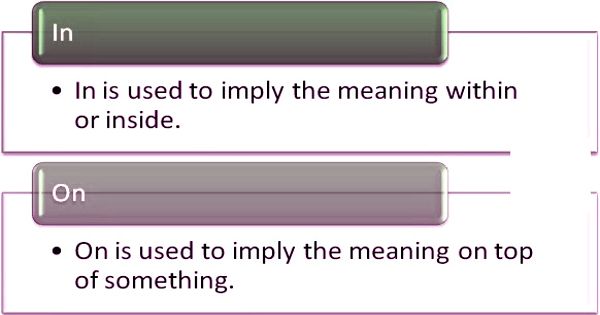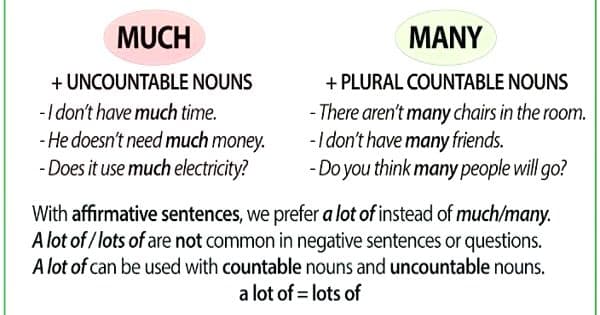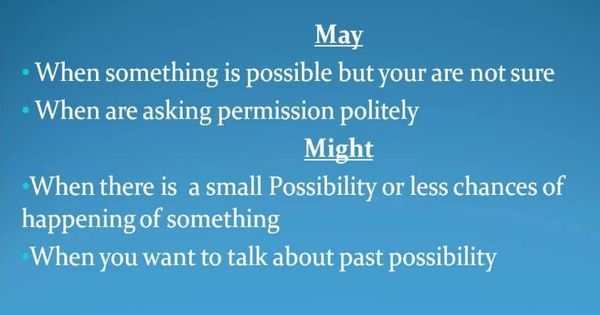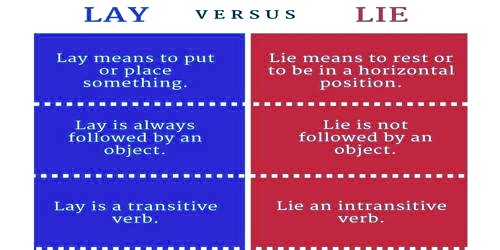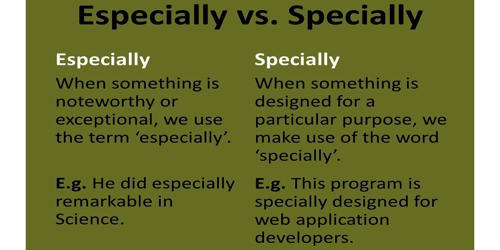Prepositions are the words that are used in sentences to show location or the relationship between the noun or pronoun with the other elements in the clause. More often than not, either IN or ON can be grammatically correct. English speakers usually face confusion in using prepositions like ‘in’ and ‘on’. It entirely depends on what you really mean in your statements. We use the word ‘in‘ when we talk about a situation in which something is enclosed by something else. It is therefore used with other parts of the day, with months, with years, with seasons.
On the other hand, ‘on‘ is used to talk about a situation when the object is placed above or outside something else. Alternatively, ON is used to denote a position for surfaces or a position just above or outside an area. For example, The book is placed on the table. If we talk about a place, usually ‘in’ is used with the name of the town, city, state, and country, whereas ‘on’ is used with street names.
‘We use the word ‘in‘ when we talk about a situation in which something is enclosed by something else. On the other hand, ‘on‘ is used to talk about a situation when the object is placed above or outside something else.’
Difference between In and On
IN
- ‘In’ is a preposition, commonly used to show a situation when something is enclosed or surrounded by something else.
- As applied to the place, ‘In’ is generally used before the names of countries and large cities, or before the name of the place in which one is at the time of speaking; as – I live in Mumbai. He lives in England.
- The word ‘in’ is a preposition, used in sentences to mean something in an enclosed place (i.e. a space having physical or virtual boundaries) or surrounded by something else.
- ‘In’ implies a preposition, that represents a situation in which something is surrounded by something else.
- ‘In’ is used when we are talking about months, years, seasons, decades, and centuries.
- Example: She is sitting in her room. May I come in the class?
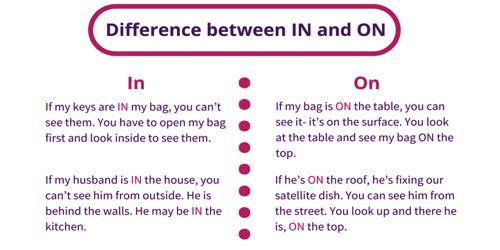
ON
- ‘On’ refers to a proposition that expresses a situation when something is positioned above something else.
- On is often used in speaking of things at rest; as, He sat on a chair.
- The word ‘on’ refers to a situation in which something is in physical contact with something else or having the support of something.
- ‘On’ is used in the situation when something is in physical contact with the surface of another object.
- ‘On’ is used when we are referring to days, dates, and special occasions.
- Example: I will meet her on Monday. Shweta’s birthday is on the 25th of February.
